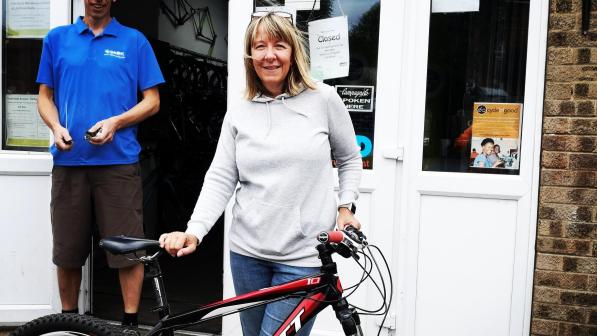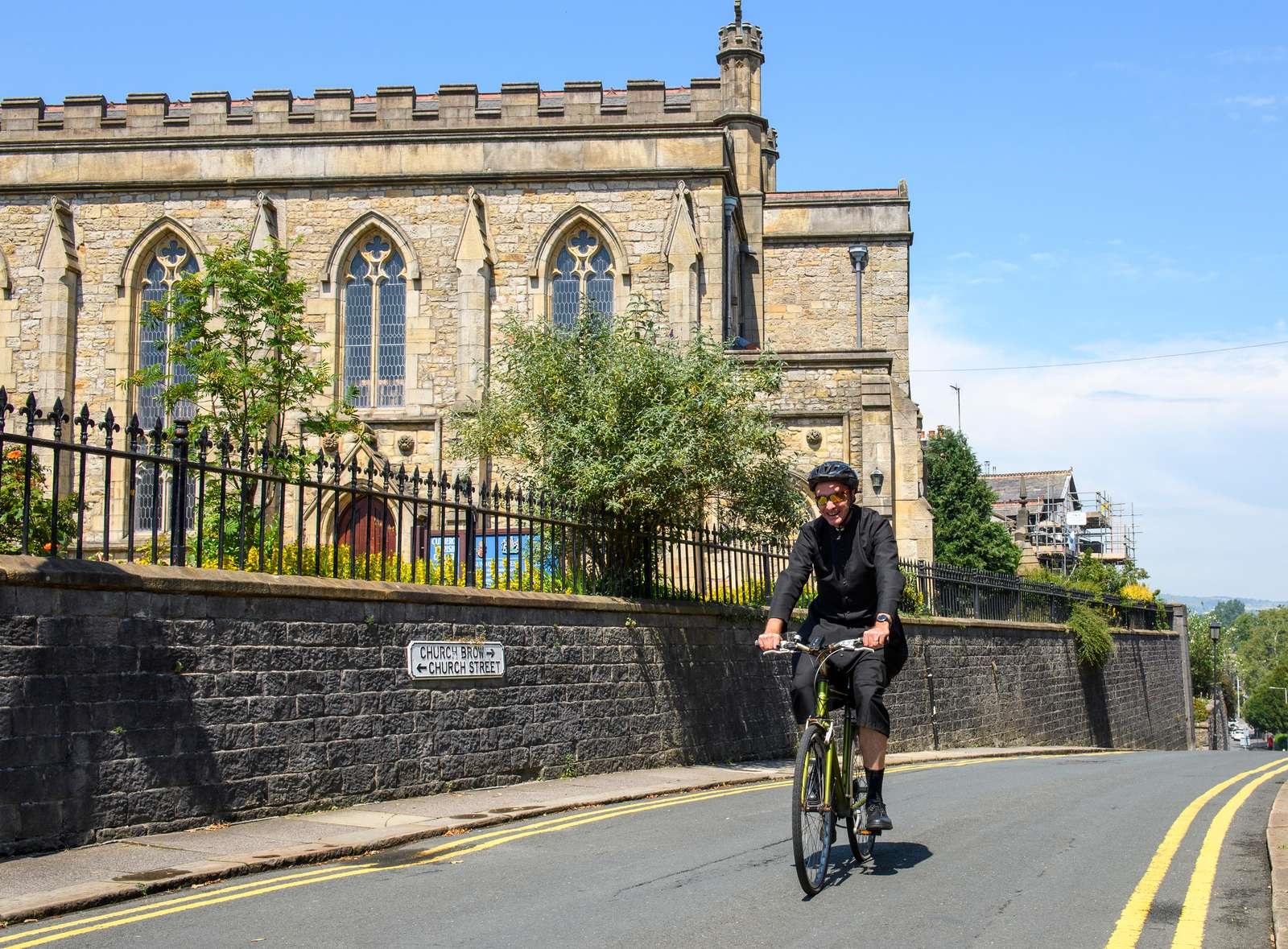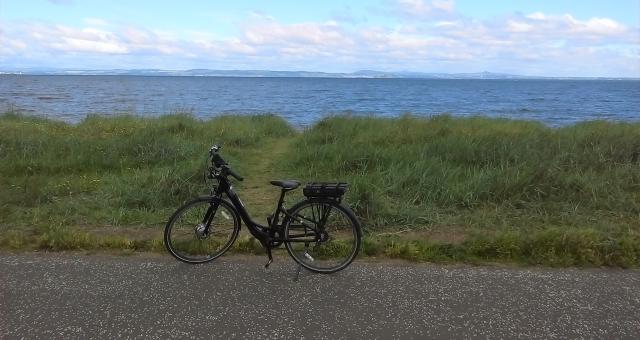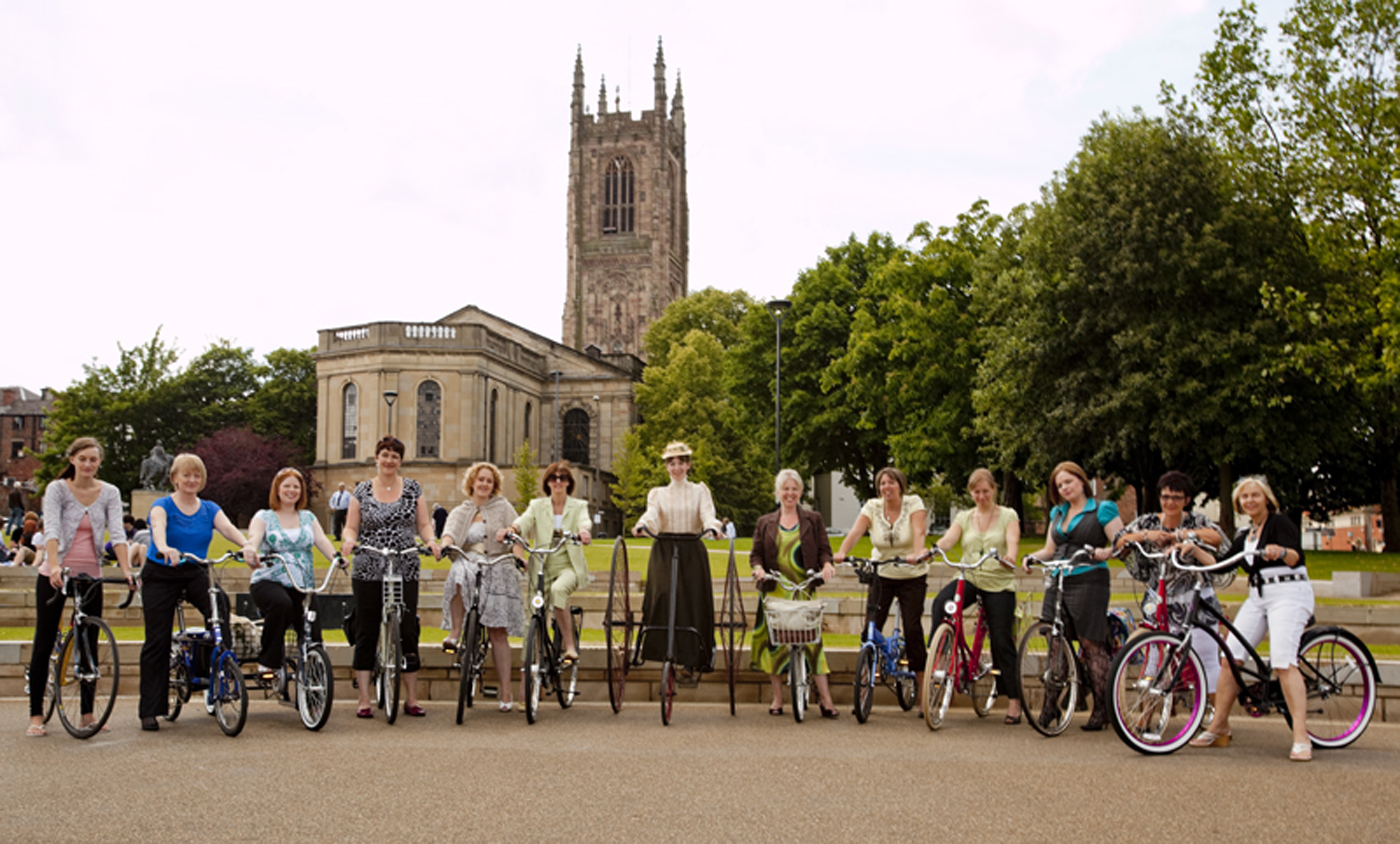At work in seven minutes... how key worker Kerry is gaining time and happiness from commuting by bike

In 2019, the average person spent about seven minutes a week travelling by bike, according to the National Travel Survey. Kerry Catlin, a healthcare worker at the University Hospitals of Derby and Burton, clocks up that much in one morning now that she is cycling the short distance to work again after getting her bike fixed earlier this summer.
The Department for Transport's current advice is to walk or cycle to work if you can. More people opting to cycle can reduce pressure on public transport where people may find it more difficult to follow advice on social distancing. With councils throughout the UK building dedicated cycle lanes to encourage more cycling, there is also a chance to change our travel to work habits.
Kerry, from Burton-on-Trent, has cycled her two-mile commute regularly during the past five weeks after getting her old bike fixed through Cycling UK’s Big Bike Revival for Key Workers which helped those working in healthcare and other vital sectors to continue to get to work safely during the Coronavirus pandemic.
Kerry said: “It has helped me get to my place of work safely and with a confidence that I can rely on my bike. I also use it for family rides which is a great way for us to get together after work and school I have always tended to commute by bike anyway even before lockdown."
She believes there are several advantages to riding to work. “It takes me seven minutes door to door to cycle to the hospital which is quicker than getting into the car and finding a parking space. I don’t have to pay for parking either, so I save money too and it is a good form of exercise," she said.
The clinical practitioner has had her current bike for around eight to 10 years, after her previous two bikes were stolen, but the past few months have helped her to reflect on what is important in life. "I work in an operating theatre. Things changed at work, theatres became ICUs, it was very hard – and it still is. The lockdown was bad for everyone but thankfully I was still able to go out cycling with my five-year-old,” she said.
Now I can get to my place of work safely and with a confidence that I can rely on my bike
Kerry Catlin
Cycling UK’s Big Bike Revival is set to expand later this month, opening up to everyone, not just key workers, as trained bike mechanics hold pop-up Dr Bike clinics in communities across the country. The mechanics will carry out fixes and repairs and check cycles are safe and roadworthy. This will ease the pressure on the bike shops taking part in the government’s own £50 repair voucher scheme, allowing those in greatest need to get their bike fixed and ready to ride away there and then.
Like Kerry, Rhian Jones-Roberts, who lives in Derbyshire, accessed a key workers’ bike service from Life Cycle UK through the Big Bike Revival. Although she has been working from home for the past five months, she hopes to use the bicycle to commute part of the 45 minute journey to work when a phased return to working in her office begins.
She said: “Everybody has just been so helpful. Before the service, my bike was not safe and I was not confident at all in using it to get to work. Now it is fixed it will make a big difference and help me get back on my bike as my preferred means of transport to work.”
“Not only will it get me to work, it is also going to give me a fitness boost – especially significant during these difficult times. It has given me the incentive I needed to get back on the road."
Rhian, a children's practitioner, is currently using the bike for family cycle rides at the weekend with her son and husband.
James Palser, who manages Cycling UK’s Cycle Friendly Employer scheme, said: “Cycle to Work Day is for everyone: whether you are already riding to work several days a week like Kerry or just thinking about giving it a go like Rhian.
"If you are returning to work and don't have a car, public transport is not your only option: cycling could be the fastest way to get employees back to work safely."
Cycle to Work Day is for everyone: whether you are already riding to work several days a week or just thinking about giving it a go
James Palser
As well as helping keep people safe, and potentially saving money and time, cycling to work is good for our environment, contributing to cleaner, less polluted air.
Life Cycle UK has also reported a demographic shift in the people accessing their services since they began helping key workers earlier this year. The take-up of the scheme has been approximately 70% female to 30% male, whereas the workshop would normally have more male customers. This appears to support the trend of more women cycling during lockdown.




